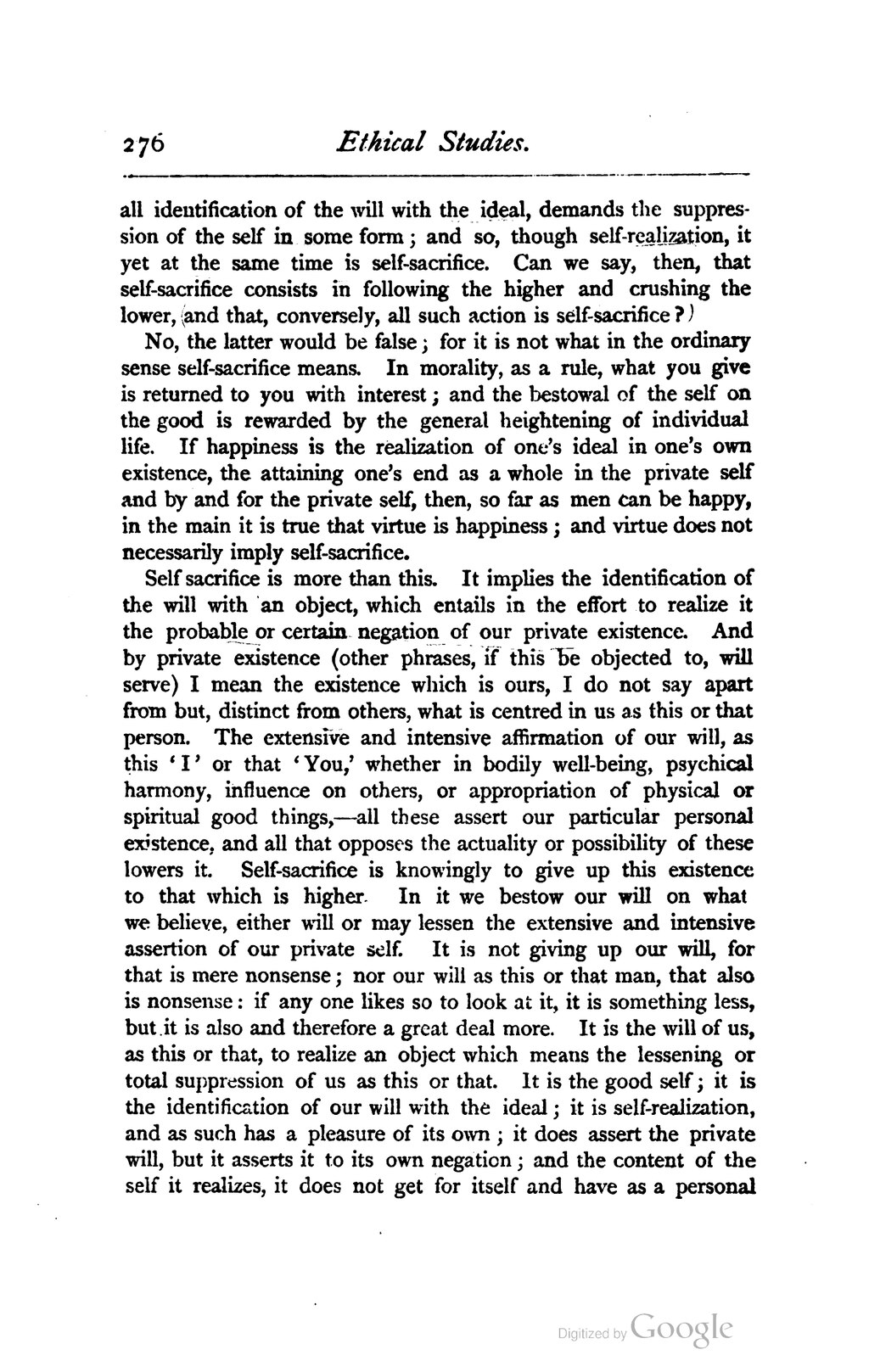all identification of the will with the ideal, demands the suppression of the self in some form; and so, though self-realization, it yet at the same time is self-sacrifice. Can we say, then, that self-sacrifice consists in following the higher and crushing the lower, and that, conversely, all such action is self-sacrifice?
No, the latter would be false; for it is not what in the ordinary sense self-sacrifice means. In morality, as a rule, what you give is returned to you with interest; and the bestowal of the self on the good is rewarded by the general heightening of individual life. If happiness is the realization of one’s ideal in one’s own existence, the attaining one’s end as a whole in the private self and by and for the private self, then, so far as men can be happy, in the main it is true that virtue is happiness; and virtue does not necessarily imply self-sacrifice.
Self sacrifice is more than this. It implies the identification of the will with an object, which entails in the effort to realize it the probable or certain negation of our private existence. And by private existence (other phrases, if this be objected to, will serve) I mean the existence which is ours, I do not say apart from but, distinct from others, what is centred in us as this or that person. The extensive and intensive affirmation of our will, as this ‘I’ or that ‘You,’ whether in bodily well-being, psychical harmony, influence on others, or appropriation of physical or spiritual good things,—all these assert our particular personal existence, and all that opposes the actuality or possibility of these lowers it. Self-sacrifice is knowingly to give up this existence to that which is higher. In it we bestow our will on what, we believe, either will or may lessen the extensive and intensive assertion of our private self. It is not giving up our will, for that is mere nonsense; nor our will as this or that man, that also is nonsense: if any one likes so to look at it, it is something less, but it is also and therefore a great deal more. It is the will of us, as this or that, to realize an object which means the lessening or total suppression of us as this or that. It is the good self; it is the identification of our will with the ideal; it is self-realization, and as such has a pleasure of its own; it does assert the private will, but it asserts it to its own negation; and the content of the self it realizes, it does not get for itself and have as a personal

